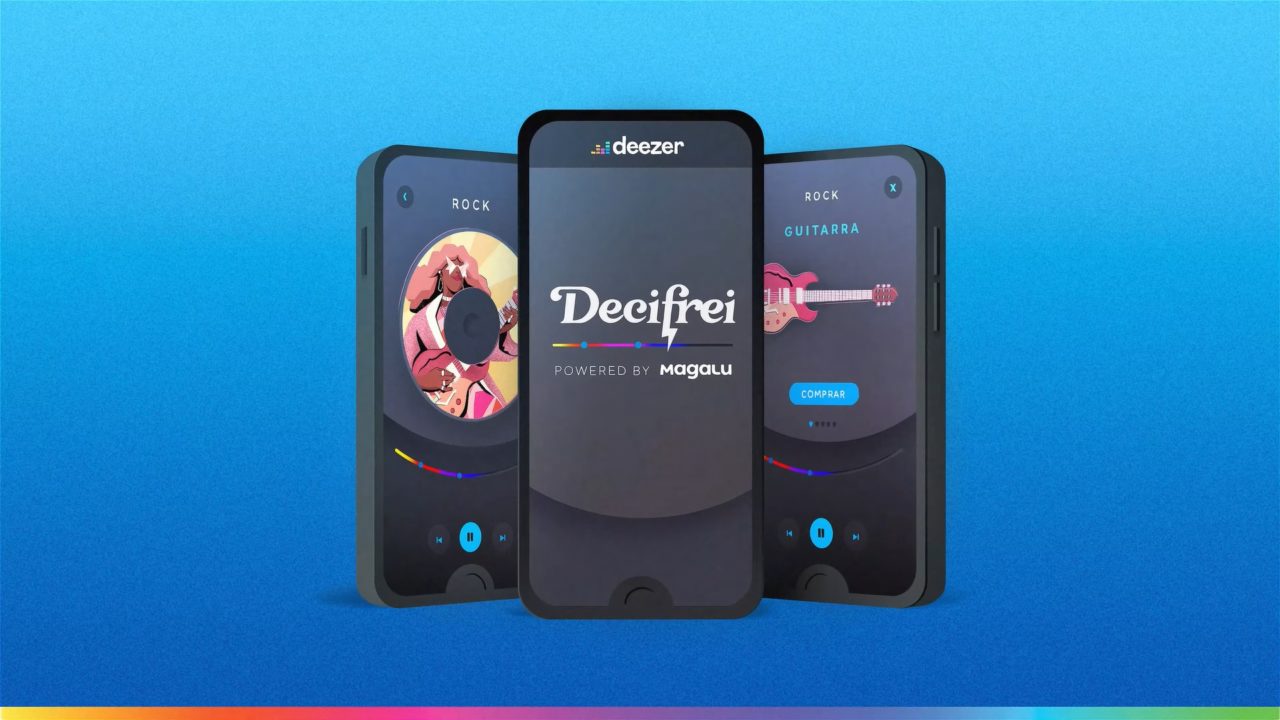Several months ago, I wrote a story for The Brasilians about Lu, the most widely followed non-human influencer in the world with tens of millions of followers on social media. Lu is the principal spokesperson and a ubiquitous virtual sales associate for Magazine Luiza, the a giant omnichannel retailer with over 1,300 physical stores and massive digital e-commerce footprint in Brazil.
Now the company, colloquially known in Brazil simply as Magalu, is at it again, this time launching an innovative shopping experience that some have dubbed as the opening salvo of an entirely new format in global online retail called “sound commerce.” Magalu calls the experience Decifrei, Portuguese for “Deciphered;” in English its being branded as ‘Shoppin’ Inside Songs.” Think of it as eCommerce that happens through the medium of music and sound.
Is your head exploding yet?
It all started – like most things of this new reality in which are living – during the early days of the pandemic when marketers at Magalu – eager to hammer home the idea that the omnichannel retailer was more than just a site that sold electronics and appliances – noticed that searches for musical instruments and recording accessories was spiking. Queries for guitars, amplifiers, drums, microphones, production equipment, etc. was surging as people, confined to home amid the lockdown and with lots of idle time on their hands, wanted to learn how to play instruments or upgrade their current ones.
This observation led the retailer to quickly develop a robust musical instrument category. Magalu’s buying team sourced over 100,000 unique musical instrument product offerings to sell on its wide-reaching ecommerce platform. But to bring this new musical instrument shopping category to life in a truly innovative way, Magalu partnered with advertising giant Ogilvy to think outside the box – and I mean way outside the box – to offer a new way of shopping that ended up pioneering something retail analysts are beginning to call S-commerce, or sound commerce.
First, Magalu and Ogilvy partnered with Deezer, a music streaming service popular in Brazil. Together they hired a team of professional music producers to not only develop streaming playlists spanning virtually every musical category from hip hop to classic rock to Brazilian sertanejo, but to identify the specific instruments and equipment used to produce each song, enabling fans to buy the exact same model of instrument or piece of equipment used in the original recording of the song. In cases where a given instrument is no longer made – think instruments used by the Beatles or Elvis – the producers flagged the most similar item currently still in production.
Here is how it works: As users scroll through the Decifrei app, they will find curated playlists spanning an array of different genres. For each featured track, every major instrument used in the original recording is highlighted with a ‘buy now’ button leading the listener to a Magalu eCommerce page where that very same model of instrument can be purchased with a simple click.
Take, for example, the Pop genre. When listeners get to Camila Cabello’s 2018 earworm “Havana,” the first piece of equipment to pop up is the Shure SM7B Microphone that the Latin songstress used to record her sultry R&B ballad. Click on the ‘buy now at Magalu’ button below the song and voilà, the listener is transported to Magalu’s product page showcasing the exact same product. The Shure SM7B Microphone can be yours for R$4,574.15 or about $869. You may not sound like Camila Cabello when you record your own rendition of “Havana” at home, but you sure won’t be able to blame the microphone.
This inspired way of listening to music and transforming each track into a bespoke musical instrument store found immediate success, with sales of musical instruments up over 50% within the first month, and traffic up nearly 200% all while creating significant buzz around Magalu’s ecommerce marketplace. The genius of the effort was even rewarded at the mother of all advertising events by taking home a statue for creative eCommerce at Cannes Lion.
The rise of S-Commerce is but yet another proof point that although eCommerce was born in the USA, its future may very well be unfolding places around the globe like Brazil.
ARICK WIERSON
Columnist for CNN, television producer & political advisor
Twitter: @ArickWierson


